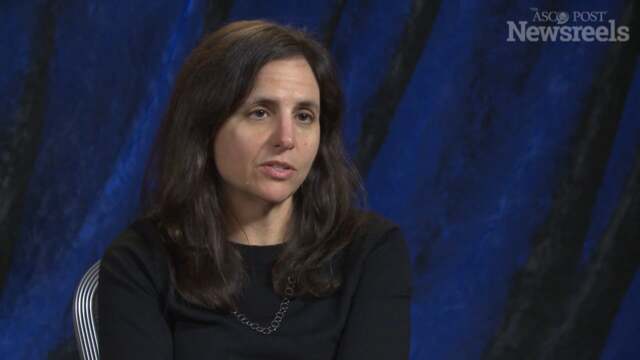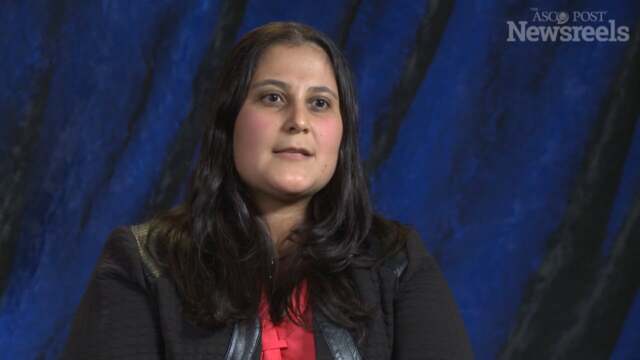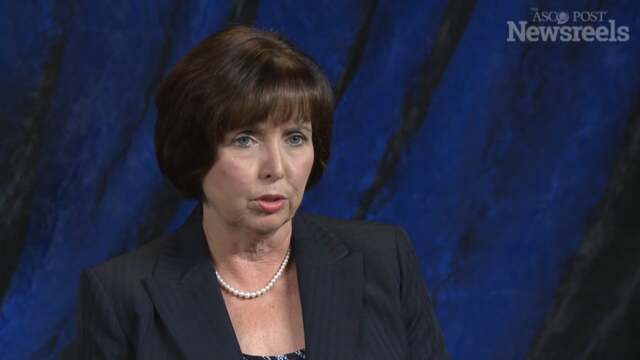Emily Haozous, PhD, RN, on Cultural Differences in End-of-Life Care
2016 Palliative Care in Oncology Symposium
Emily Haozous, PhD, RN, of the University of New Mexico, discusses health disparities and cultural differences in palliative and end-of-life care, with case study examples drawn from American Indian communities.
Jennifer S. Temel, MD, of Massachusetts General Hospital, discusses increasing prognostic uncertainty in light of targeted treatments and immunotherapies, and the difficulty predicting who will benefit.
Sriram Yennu, MD, of The University of Texas MD Anderson Cancer Center, discusses findings from a study of an international cohort of patients with advanced cancer who received palliative care. Nearly half the patients incorrectly believed their cancer was curable (Abstract 5).
Areej El-Jawahri, MD, of Massachusetts General Hospital, discusses ways in which palliative care can reduce symptoms, improve quality of life, reduce depression and anxiety, and potentially optimize end-of-life care for patients with hematologic malignancies.
Eileen Danaher Hacker, PhD, APN, AOCN, of the University of Illinois at Chicago, discusses study findings that show improvement in physical activity, fatigue, muscle strength, and functional ability (Abstract 190).
Scott A. Irwin, MD, PhD, of Cedars-Sinai’s Samuel Oschin Comprehensive Cancer Institute, discusses delirium—its definition, prevalence, consequences, assessment, and management.





